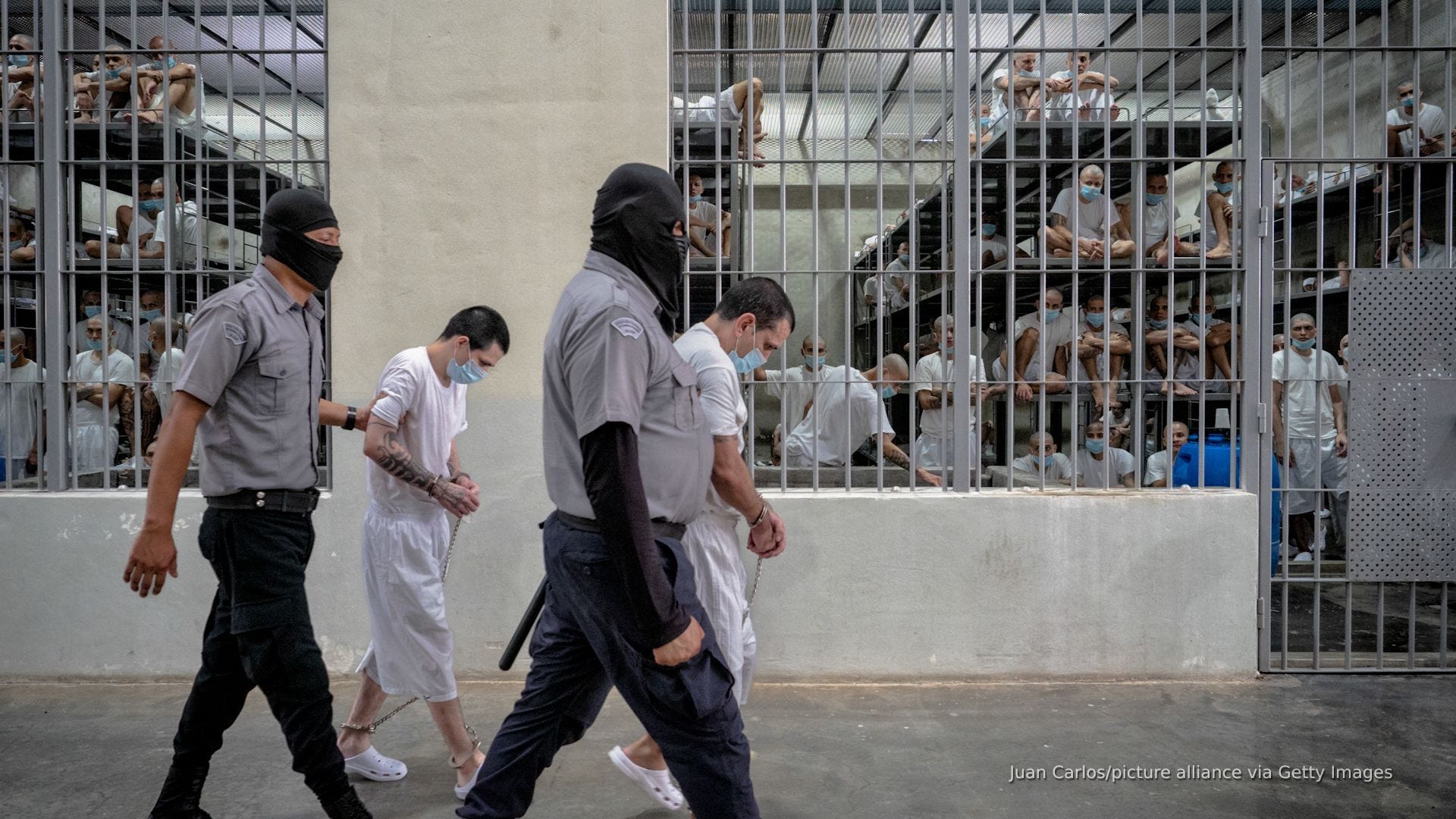What happens when the government chooses to label anyone they wish to deport as being a suspected gang member? Who holds the Trump administration accountable in that world? Not Republicans.

How did a Maryland resident end up in a El Salvador prison?
U.S. immigration officials admit mistakenly deporting a Maryland man to El Salvador, sparking controversy and criticism from advocates.
Straight Arrow News
More and more, right-wing commentators and elected officials are claiming that illegal immigrants are not worthy of due process.
The Trump administration seems to agree, both in their words and their actions. That has led to at least one case of mistaken deportation. The case of Kilmar Abrego Garcia’s deportation was such a mess that a judge on Friday ordered he be returned from El Salvador.
In issuing the ruling, the judge called the deportation an “illegal act.”
White House officials are focused on deporting by any means necessary, but they seem not to care at all about ensuring the accuracy of these deportations. Due process is an important safeguard against abuse, ensuring that the government is not acting with haste or malice. Republicans are wrong when they argue that it is irrelevant, even for illegal immigrants.
Trump’s mass deportations lack any sense of accountability
Many of these recent deportations have come through the Alien Enemies Act, which reduces the burden of due process on deportations during wartime.
The use of the act has been the subject of a heated legal battle and has spurred public debate about due process for deportees.
However, due process in deportation proceedings is critical to ensuring mistakes don’t happen. Clerical errors, such as the one that resulted in Abrego Garcia, a migrant living in Maryland under protected status, being sent to a Salvadoran prison, are less likely to happen if our leaders follow the correct steps.
Abrego Garcia was only suspected of being a gang member, not convicted as Vice President JD Vance has claimed. In 2019, he was ruled to not be eligible for deportation by a judge, and until last week, he lived in Maryland with his family, who are citizens. The Trump administration, claiming an error, went ahead and deported him anyway under the Alien Enemies Act.
Abrego Garcia was arrested by Immigration and Customs Enforcement and sent on a flight to El Salvador in just 3 days, before anyone could catch the error that was made. The Trump administration would rather deport and litigate later.
Although the Department of Justice admitted the deportation was made in error, the administration stood by its position that he shouldn’t be in the country, with White House press secretary Karoline Leavitt even doubling down, claiming that he’s “a leader of the brutal MS-13 gang” and that he “was involved in human trafficking.”
While this evidence has not been released, their claim is at least corroborated by a 2019 court decision, in which the judge cites that a confidential informant identified him as a “ranking member of the MS-13 gang” to police.
Abrego Garcia’s lawyers have maintained that no real evidence has been produced supporting that claim.
This all proves why due process is so important. Allowing for the proper deliberations to play out and determine the correct course of action is the purpose of these processes. These questions cannot be litigated after the fact.
Due process protects all of us from tyranny
Due process doesn’t just protect the individuals being prosecuted; it protects all Americans. The same processes that verify that the Trump administration has the right to deport also establish when that right doesn’t apply.
What happens when the government chooses to label anyone they wish to deport as being a suspected gang member? Who holds the Trump administration accountable in that world? Right now, it’s not Republicans.
The individuals being deported in these cases have no opportunity to contest the allegations against them, nor are Trump officials forced to outline their grounds for deporting them.
The Trump administration admits that many of these deportees have no criminal convictions, making it even harder to substantiate their claims that these individuals warrant skipping due process.
In fact, the only assurance that the public has that these deportations are lawful and proper is the Trump administration’s word, which isn’t worth much.
Americans should worry about whether the Trump administration is taking the steps necessary. When federal officials deport people without due process, they are not following laws. When corners are cut in the arena of due process, innocent people inevitably get caught in the crossfire.
The Trump administration is resorting to this blitz approach to deportations in part because Congress has refused to do anything to help President Donald Trump on illegal immigration. Instead, Trump is working off of outdated authority for wartime purposes to accomplish his goals.
Thankfully, court orders have blocked further deportations under the Alien Enemies Act (pending rule in this case), and the administration seems to be listening thus far. Americans should worry about the potential for abuse if these deportations are allowed to resume.
Dace Potas is an opinion columnist for USA TODAY and a graduate of DePaul University with a degree in political science.
This article was originally published by a www.usatoday.com . Read the Original article here. .

